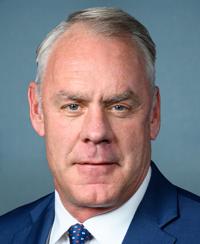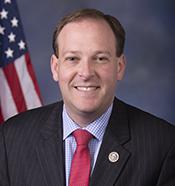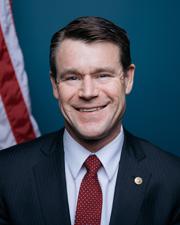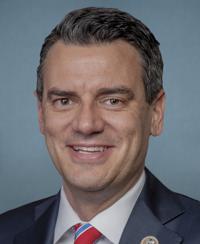0
Helping Families in Mental Health Crisis Act of 2016
1/11/2023, 1:31 PM
Congressional Summary of HR 2646
Helping Families in Mental Health Crisis Act of 2016
TITLE I--ASSISTANT SECRETARY FOR MENTAL HEALTH AND SUBSTANCE USE
(Sec. 101) This bill amends the Public Health Service Act (PHSA) to rename the position of Administrator of the Substance Abuse and Mental Health Services Administration (SAMHSA) to Assistant Secretary for Mental Health and Substance Use. The bill revises the duties under this position, including to require the review and evaluation of programs related to mental illness and substance use disorders.
(Sec. 102) The Office of the Assistant Secretary for Planning and Evaluation must: (1) evaluate programs related to mental illness and substance use disorders, (2) develop an evaluation strategy that identifies priority programs to be evaluated, and (3) make recommendations to improve evaluated programs.
(Sec. 103) SAMHSA's Office of Policy, Planning, and Innovation is renamed the National Mental Health and Substance Use Policy Laboratory. The bill specifies responsibilities for the laboratory, including that the laboratory must: (1) facilitate the implementation of policy changes likely to have a significant effect on mental health; (2) collect information from SAMHSA grantees to evaluate and disseminate information on evidence-based practices; and (3) identify federal activities that are duplicative or that are not evidence-based, effective, or efficient.
(Sec. 104) The Government Accountability Office (GAO) must study peer-support specialist programs that receive funding from SAMHSA to identify best practices for training and credential requirements.
(Sec. 105) This bill amends the Protection and Advocacy for Individuals with Mental Illness Act to prohibit state protection and advocacy systems from using federal funds to lobby.
(Sec. 106) State protection and advocacy systems must publish their annual reports. The Department of Health and Human Services (HHS) must include in its biennial reports detailed accounting for each system.
(Sec. 107) HHS must establish a grievance procedure for clients and potential clients of state protection and advocacy systems.
(Sec. 108) SAMHSA must establish a Center for Behavioral Health Statistics and Quality to: (1) coordinate SAMHSA's integrated data strategy, (2) recommend measurement standards for SAMHSA grant programs, and (3) coordinate efforts to evaluate activities supported by SAMHSA. Every two years, the center must report on the quality of services furnished through SAMHSA grant programs.
(Sec. 109) Every five years, SAMHSA must develop, publish, and carry out a strategic plan.
(Sec. 110) The bill revises provisions regarding SAMHSA's Center for Mental Health Services and Center for Substance Abuse Treatment, including to require the centers to ensure consistent documentation of the application of grant criteria.
(Sec. 111) The bill revises membership requirements for SAMHSA advisory councils.
(Sec. 112) The bill revises membership requirements for SAMHSA peer review groups.
TITLE II--MEDICAID MENTAL HEALTH COVERAGE
(Sec. 201) The bill declares that current law allows a state Medicaid plan to pay for a primary care service and a mental health service furnished to an individual on the same day by providers at the same facility.
(Sec. 202) The bill amends title XIX (Medicaid) of the Social Security Act to provide for federal payment under Medicaid, under specified conditions, for capitated payments to Medicaid managed care organizations or prepaid inpatient health plans for individuals between 21 and 65 years old who are receiving inpatient treatment in institutions for mental diseases.
(Sec. 203) The Centers for Medicare and Medicaid Services (CMS) must report on Medicaid coverage of services provided through Medicaid managed care organizations or prepaid inpatient health plans to certain enrollees receiving treatment in institutions for mental diseases.
(Sec. 204) The CMS must notify state Medicaid programs regarding opportunities to design innovative service delivery systems for individuals with serious mental illness or serious emotional disturbance.
(Sec. 205) The CMS must collect and report specified information from states with Medicaid emergency psychiatric demonstration projects, including the extent to which there is a reduction in spending under demonstration projects.
(Sec. 206) The bill provides for federal payment under Medicaid for early and periodic screening, diagnostic, and treatment services for children in inpatient psychiatric hospitals, effective January 1, 2019.
(Sec. 207) Federal payment under Medicaid for in-home personal care services or home health care services is reduced for states that do not require the use of an electronic visit verification system for such services, effective January 1, 2019. The CMS must pay a specified share of state expenditures attributable to such a system.
HHS must disseminate to states best practices for electronic visit verification systems, including training for users.
TITLE III--INTERDEPARTMENTAL SERIOUS MENTAL ILLNESS COORDINATING COMMITTEE
(Sec. 301) HHS must establish the Interdepartmental Serious Mental Illness Coordinating Committee to report on research, evaluate the effect of federal programs, provide a plan to improve outcomes for individuals, and recommend agency actions to better coordinate administration of mental health services.
TITLE IV--COMPASSIONATE COMMUNICATION ON HIPAA
(Sec. 402) After finalizing regulations on the confidentiality of alcohol and drug abuse patient records, HHS must convene stakeholders to determine the effect of the regulations on patient care, health outcomes, and patient privacy.
(Sec. 403) HHS must promulgate regulations clarifying the circumstances under which an entity may disclose protected health information.
(Sec. 404) HHS must develop and disseminate model programs and materials for training: (1) health care providers and legal professionals regarding disclosure of the protected health information of patients with a mental illness, and (2) patients and their families regarding their rights to protect and obtain such information.
TITLE V--INCREASING ACCESS TO TREATMENT FOR SERIOUS MENTAL ILLNESS
(Sec. 501) SAMHSA must award grants for assertive community treatment programs for individuals with serious mental illness. (Patients in assertive community treatment programs receive care in their community from a multidisciplinary team of providers.)
(Sec. 502) SAMHSA must award grants to enhance community-based crisis response systems or for a database of available beds at inpatient psychiatric facilities, crisis stabilization units, and residential community mental health and residential substance use disorder treatment facilities.
(Sec. 503) This bill amends the Protecting Access to Medicare Act of 2014 to extend through FY2022 a pilot program for assisted outpatient treatment programs for individuals with serious mental illness.
(Sec. 504) A health professional volunteer providing primary health care to an individual at a community health center or through programs or events carried out by a center is deemed to be an employee of the Public Health Service for purposes of any civil action that may arise from providing services to patients. For a volunteer to be covered by this liability protection, HHS must approve the center's application to sponsor the volunteer.
TITLE VI--SUPPORTING INNOVATIVE AND EVIDENCE-BASED PROGRAMS
Subtitle A--Encouraging the Advancement, Incorporation, and Development of Evidence-Based Practices
(Sec. 601) SAMHSA may award grants for the development of evidence-based interventions for mental illness, serious emotional disturbance, substance use disorders, and co-occurring illness or disorders.
(Sec. 602) SAMHSA must review and publish information on evidence-based programs and practices.
Subtitle B--Supporting the State Response to Mental Health Needs
(Sec. 611) The bill revises block grants for community mental health services. States must use at least a specified amount of a block grant to support evidence-based programs for individuals with early serious mental illness. The bill revises the block grant requirement that a state maintain spending on community mental health services.
Subtitle C--Strengthening Mental Health Care for Children and Adolescents
(Sec. 621) The Health Resources and Services Administration must award grants to promote integration of behavioral health with pediatric primary care.
(Sec. 622) HHS must award grants for infant and early childhood mental health promotion, intervention, and treatment programs.
(Sec. 623) The bill revises and extends through FY2021 a grant program to address violence-related stress. The program must support the continued operation of the National Child Traumatic Stress Initiative (NCTSI). The NCTSI coordinating center must report on child treatment and outcomes and facilitate training in evidence-based and trauma-informed treatments, interventions, and practices.
TITLE VII--GRANT PROGRAMS AND PROGRAM REAUTHORIZATION
Subtitle A--Garrett Lee Smith Memorial Act Reauthorization
(Sec. 701) The bill revises and extends through FY2021 a technical assistance resource center to prevent suicides. The center's focus is expanded from youth suicides to suicides among all ages, particularly among groups that are at high risk for suicide.
(Sec. 702) A program to provide support for youth suicide early intervention and prevention strategies is also revised and extended through FY2021.
(Sec. 703) The bill revises and extends through FY2021 SAMHSA grants for mental and behavioral health services at institutions of higher education.
Subtitle B--Other Provisions
(Sec. 711) SAMHSA must maintain the existing National Suicide Prevention Lifeline program.
(Sec. 712) SAMHSA must publish a report on the adult and pediatric mental health and substance use disorder workforce.
(Sec. 713) HHS must maintain a Minority Fellowship Program for mental and substance use treatment professionals to improve services for racial and ethnic minority populations.
(Sec. 714) The bill repeals various expired SAMHSA programs.
(Sec. 715) The Centers for Disease Control and Prevention (CDC) is encouraged to improve the National Violent Death Reporting System.
(Sec. 717) HHS must award grants to develop and sustain behavioral health paraprofessional training and education programs, including through tuition support.
(Sec. 718) Pediatric mental health subspecialists are eligible for National Health Service Corps programs.
(Sec. 719) SAMHSA must award grants for suicide prevention and intervention programs for adults.
(Sec. 720) SAMHSA may award grants to: (1) train first responders to recognize and intervene with individuals with mental illness, and (2) establish collaborative law enforcement and mental health programs to provide services during mental health crises.
(Sec. 721) SAMHSA may award grants to support the recruitment and training of health services psychology students, interns, and postdoctoral residents in community mental health settings.
(Sec. 722) The bill extends through FY2022 a loan repayment program for health professionals who provide pediatric specialty care to underserved areas or populations.
(Sec. 723) The bill reduces the authorization of appropriations for CDC facilities.
TITLE VIII--MENTAL HEALTH PARITY
(Sec. 801) HHS, the Department of Labor, and the Department of the Treasury must: (1) issue guidance to improve the compliance of group health plans and health insurance coverage with requirements for parity between mental health and substance use disorder benefits and medical and surgical benefits, and (2) audit the plan documents of group health plans and health insurers that repeatedly violate parity requirements.
The bill amends the PHSA, the Employee Retirement Income Security Act of 1974 (ERISA), and the Internal Revenue Code to require health plan administrators to make available information, including the criteria used to make medical necessity determinations, to demonstrate compliance with parity requirements.
(Sec. 802) HHS must convene stakeholders to produce an action plan for improved federal and state coordination regarding enforcement of parity requirements.
(Sec. 803) The Employee Benefits Security Administration must report on closed federal investigations that found serious violations of parity requirements.
(Sec. 804) The GAO must report on the extent to which group health plans, health insurance coverage, Medicaid managed care plans, and Children's Health Insurance Program (CHIP) health plans comply with parity requirements.
(Sec. 805) HHS may: (1) update published information on eating disorders, (2) incorporate public resources into its obesity prevention programs, and (3) advance public awareness of eating disorders.
(Sec. 806) HHS may facilitate the identification of programs to educate and train health professionals regarding eating disorders.
(Sec. 807) The GAO must report on federal oversight of group health plans, health insurance coverage, and Medicaid managed care plans regarding compliance with parity requirements.
(Sec. 808) Eating disorder benefits under group health plans and health insurance coverage must be consistent with parity requirements.



